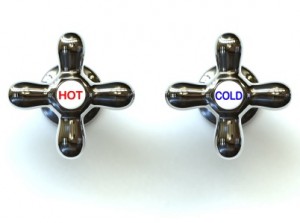Reason Aids Self Control When You are Cool
Friday, November 18th, 2011 A well-known self control technique involves the use of reason to combat temptation. For example, if you are trying to control your eating behaviors and someone offers you a piece of cake you can remind yourself that you don’t really need the cake, eating the cake will make you feel bad later or any number of ways of using reason to maintain control. But does this work?
A well-known self control technique involves the use of reason to combat temptation. For example, if you are trying to control your eating behaviors and someone offers you a piece of cake you can remind yourself that you don’t really need the cake, eating the cake will make you feel bad later or any number of ways of using reason to maintain control. But does this work?
Recent research from Northwestern University suggests that using cognition to control behavior works best when you are not in the related visceral state. Visceral states are biological drive states and include for example, hunger, thirst, sexual desire and fatigue. In the cake example, using reason to avoid it will work best when I am not hungry.
 Visceral states tend to trump psychological states. When we are in the grip of a craving we are aroused and in a “hot” cognitive state. Our attempt to use reason can be corrupted into a rationalization for indulging. On the other hand, when satiated or satisfied we are in a “cool” cognitive state and reason helps to control behavior.
Visceral states tend to trump psychological states. When we are in the grip of a craving we are aroused and in a “hot” cognitive state. Our attempt to use reason can be corrupted into a rationalization for indulging. On the other hand, when satiated or satisfied we are in a “cool” cognitive state and reason helps to control behavior.
Bottom line for cognitive designers working on behavior change is that reason-based strategies are useful but not sufficient for maintaining self control. You will need to design biology-based strategies to maintain control in the presence of hot cognitive states.